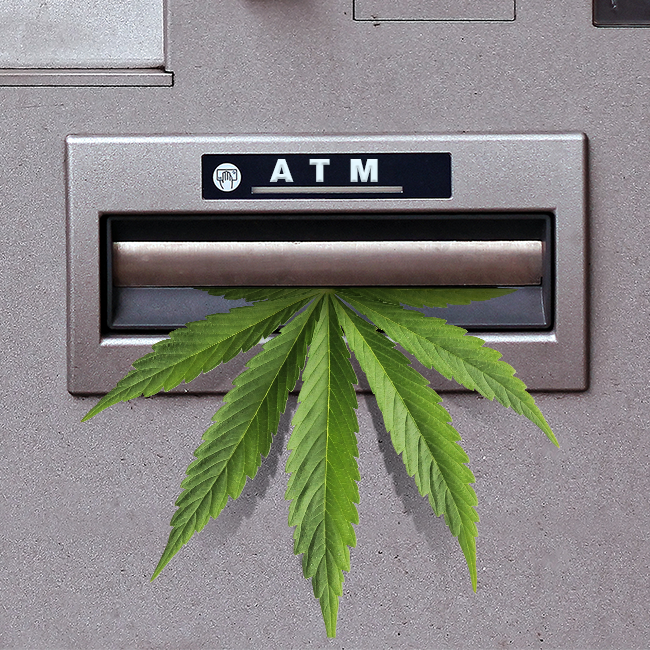
The cannabis industry is like any other industry out there. They need a place to put their money. Just like you and I, most businesses put their money in the bank. Usually, in these banks where business entities keep their money, they can obtain business loans to grow their businesses. However, this becomes a complication for anyone making a living within the cannabis industry. Whether you’re a producer, a dispensary, or even an employee/consultant, banking can become a highly complex matter.
This has been an issue since the industry’s inception back in 1996. Some have had to do “self banking,” while some can get in with small/local banks and credit unions in a few cases. Can you imagine the nightmare of being an employee of an entity that “self banks”? Or even having to deal with a bank on the other side of a state because that’s the only place that will consider doing business with you? Plus, the banks don’t really care about it, and they make plenty of money just doing what they’re doing.
How do banks make money? Most banks make money from loan interest income and loan portfolio sales, investments, and fee income. Suppose any potential customers are too high of a risk to the bank. In that case, usually, the business will be passed over. I’m not saying all, but most will pass on it. But why?
There’s tons of money to be made in the cannabis industry, right? Yes, there could be, and banks see this as well. However, a high-risk customer in a federally illegal industry could put a bank at risk and in a position of financial liability. All FDIC-insured banks are subject to federal law. So whether the bank is a local community bank, credit union, or a national bank, they still have what is referred to as a charter. At a minimum, all banks maintain Federal Deposit Insurance, which requires them to uphold the federal law. If they don’t uphold the federal law, the bank could lose its charter. No charter equals no bank. There, my friends, is where state law and federal law collide when concerned with cannabis and banking.
Financial institutions face a significant risk for violating federal law if they offer banking services to marijuana-related businesses. The federal statutory barriers include the Controlled Substance Act, USA Patriot Act, Bank Secrecy Act, Racketeer Influenced and Corrupt Organizations Act, and other anti-money laundering regulations. Any violations of federal law could result in the bank being heavily fined and possibly losing its charter. And if a bank loses its charter, it’s not a bank. In addition, all banks are subject to meet the requirements of the Bank Secrecy Act. Under this act, banks must report to the federal government any suspected illegal activity and report the business entity to the federal government. So even if they only suspect illegal activity but cannot prove it, banks are required to report it under federal law.
So, how does this get fixed? I don’t know… it’s just my opinion, but to start, I think it’s unreasonable for any industry to expect banks to take that significant risk when this is still federally illegal. You can reference the February 2018 release by FinCen, the Financial Crime Enforcement Agency (a division of the US Treasury), to see that they specifically say there has been no change to their 2014 federal ruling and guidance. Regardless of any presidential memorandum, it doesn’t matter. Federal law stands. It’s not just dispensaries or growers. It’s all cannabis-related industries. This even includes the hemp industry as well, even though it’s been legal under the farm bill since 2018. Banks will ask you to take your financial needs elsewhere due to the nature of your business.
The banks aren’t going to champion this through Congress because although they recognize there is a lot of money to be made, this is not their fight. This is a torch that the industry has to pick up if they want to see any change. Currently, most states, the District of Columbia, Guam, and Puerto Rico, have all legalized the use of marijuana to some degree, even if only CBD. Yet, the possession, distribution, or sale of marijuana remains illegal under federal law. This means any contact with money that can be traced back to state marijuana operations could be considered money laundering. This would expose a bank to significant legal, operational, and regulatory risks.
If the cannabis industry wants this to change, they need to call their legislators and/or put their lobbyists to good use. The only way to change the current cannabis-related banking laws is through a congressional bill.


